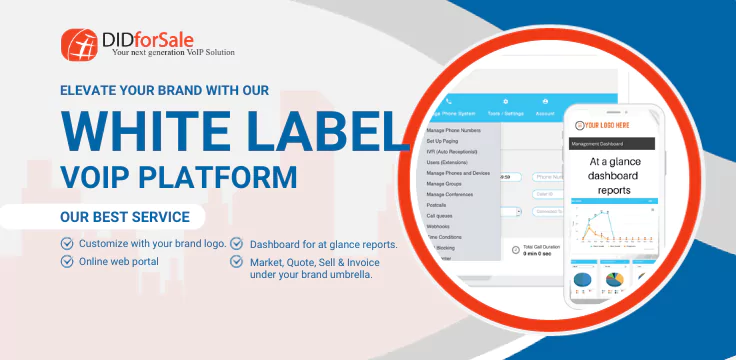The rapid evolution of telemedicine has revolutionized the healthcare industry, enabling practitioners to provide quality care remotely. As telemedicine expands, the need for robust communication solutions becomes even more critical. Enter VoIP for healthcare — a transformative technology that ensures seamless, cost-effective, and reliable communication across the healthcare ecosystem.
Whether healthcare providers manage patient records, coordinate between departments, or conduct virtual consultations, healthcare VoIP solutions are indispensable. Here’s why your hospital, clinic, or telemedicine service should adopt VoIP systems for hospitals to stay ahead in modern healthcare.
Enhanced Patient-Provider Communication
Effective communication forms the backbone of telemedicine. With VoIP technology in healthcare, practitioners can interact with patients through voice calls, video consultations, or instant messaging. Unlike traditional phone systems, VoIP operates over the internet, ensuring high-quality connections even in remote areas.
Key Benefits for Patient Communication:
- Crystal-clear audio and video: This feature improves the quality of virtual consultations, making interactions more personal and professional.
- 24/7 availability: Open communication lines ensure emergencies receive prompt attention.
- Multi-device compatibility: Patients can connect using smartphones, tablets, or computers, offering flexibility.
Moreover, VoIP bridges the gap between distance and care, ensuring patients feel heard and supported, regardless of their location. As a result, patient satisfaction improves significantly.
Streamlined Internal Communication
Hospitals and healthcare facilities rely on seamless communication among various departments. VoIP systems for hospitals simplify internal coordination by integrating features like group calls, instant messaging, and video conferencing.
Use Cases:
- Real-time updates: Critical information is disseminated quickly and effectively, which enhances decision-making.
- Team collaboration: Multi-departmental discussions improve communication and efficiency.
- Automated paging systems: On-call doctors receive immediate notifications, reducing response times and improving patient care.
This streamlined approach minimizes errors and enhances operational efficiency, which ultimately leads to better patient outcomes.
Cost-Effective Communication for Hospitals
Managing costs without compromising quality is one of the biggest challenges in healthcare. Traditional phone systems with multiple lines are expensive to maintain. VoIP for healthcare offers a cost-effective alternative by leveraging existing internet infrastructure.
Cost Advantages:
- No hardware dependency: Upfront investments in phone systems are significantly reduced, which saves resources.
- Scalable solutions: Facilities pay for what they need and scale as they grow, avoiding unnecessary costs.
- Free internal calls: Inter-department communication costs decrease, saving additional resources.
Furthermore, savings achieved through VoIP can be redirected toward enhancing patient care and acquiring advanced medical technologies. Therefore, VoIP provides both immediate and long-term financial benefits.
VoIP Integration with Healthcare Systems
Integrating VoIP with Electronic Health Records (EHRs) and other healthcare management tools elevates operational efficiency. For example, when a patient’s call automatically pulls up their medical history, doctors can provide personalized care in real time.
Benefits of Integration:
- Centralized data access: Communication logs combine with patient records for easy access, simplifying workflows.
- Automated appointment reminders: These reduce no-shows and improve scheduling, streamlining administrative tasks.
- Secure communication: VoIP ensures HIPAA-compliant conversations and data sharing for regulatory adherence, building trust.
By implementing VoIP, hospitals create a unified system that empowers both patients and providers to work seamlessly.
 Improved Patient Management
Improved Patient Management
Managing patient information and appointments can overwhelm hospitals, especially during peak times. VoIP for patient management simplifies these processes through automation and intelligent features.
Features for Patient Management:
- Call routing: Patients are directed to the right department without long wait times, improving efficiency.
- Interactive Voice Response (IVR): Patients book, reschedule, or cancel appointments through automated menus, saving time and resources.
- Voicemail transcription: Converting voicemails into text ensures quick processing and action, which enhances administrative efficiency.
These tools enhance the patient experience and free up staff to focus on providing quality care. Moreover, they streamline daily operations significantly.
Scalability for Growing Needs
Healthcare facilities constantly evolve, and their communication systems must adapt accordingly. Traditional systems struggle to keep up with this growth, but VoIP systems are inherently scalable.
How VoIP Supports Growth:
- Easy addition of lines: New staff or departments are accommodated with minimal effort and no disruption.
- Cloud-based solutions: Communication systems are accessed from any location, supporting remote operations and flexibility.
- Global connectivity: Telemedicine providers operating across borders benefit from VoIP’s flexibility, ensuring continuity of care.
In addition, VoIP ensures that your communication infrastructure grows with your facility, keeping pace with demand and innovation. This flexibility supports both short-term needs and long-term expansion.
Security and Compliance
Security is critical in healthcare, where sensitive patient information is exchanged daily. Modern healthcare VoIP solutions meet stringent security standards, ensuring data integrity and privacy.
Security Features:
- End-to-end encryption: This protects voice and video calls from unauthorized access, enhancing trust.
- HIPAA compliance: All communication adheres to healthcare regulations, safeguarding patient data effectively.
- Secure backups: Communication logs and records are safeguarded in the cloud, ensuring recovery when needed.
By choosing a reliable VoIP provider, hospitals mitigate risks and maintain patient trust. Consequently, healthcare providers can focus on delivering care without worrying about data breaches.
The Future of Healthcare with VoIP
As telemedicine expands, VoIP technology in healthcare will play a pivotal role in shaping its future. From wearable health devices that sync with VoIP to AI-powered virtual assistants managing patient inquiries, the possibilities are endless.
Hospitals and clinics that invest in healthcare VoIP solutions today set themselves up for success tomorrow. This technology enhances patient care and streamlines operations, making healthcare more accessible and efficient for all stakeholders.
Conclusion: Why VoIP is a Must for Healthcare
The healthcare industry constantly faces pressure to deliver high-quality care while managing costs and improving efficiency. VoIP for healthcare addresses these challenges by providing a flexible, scalable, and cost-effective communication solution.
If your facility hasn’t yet adopted VoIP systems for hospitals, now is the time to act. Upgrade your communication infrastructure, enhance patient satisfaction, and stay ahead in the competitive telemedicine landscape.
Ready to take the next step? Learn more about VoIP for healthcare and discover how it can transform your operations.








